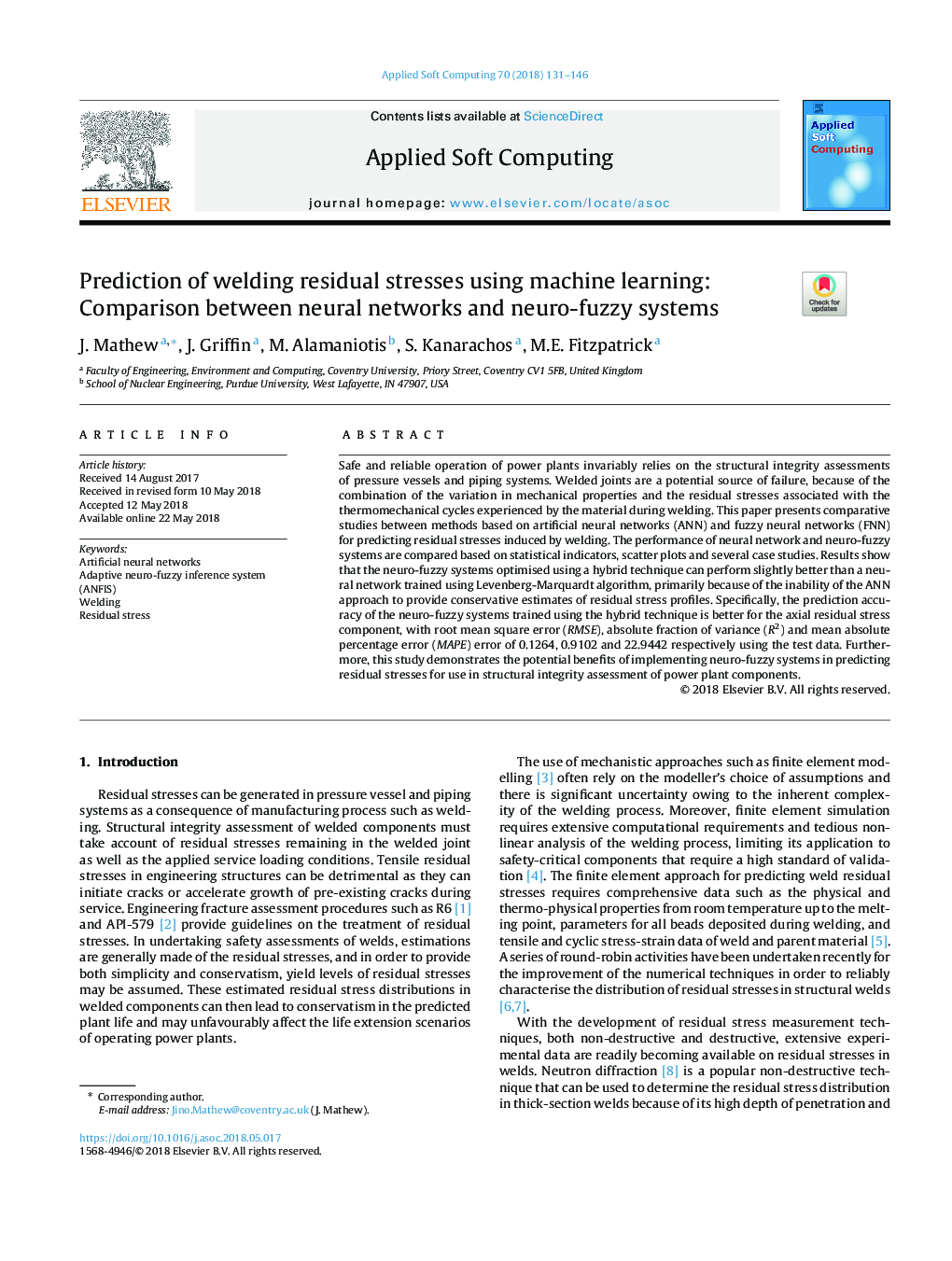| Article ID | Journal | Published Year | Pages | File Type |
|---|---|---|---|---|
| 6903360 | Applied Soft Computing | 2018 | 16 Pages |
Abstract
Safe and reliable operation of power plants invariably relies on the structural integrity assessments of pressure vessels and piping systems. Welded joints are a potential source of failure, because of the combination of the variation in mechanical properties and the residual stresses associated with the thermomechanical cycles experienced by the material during welding. This paper presents comparative studies between methods based on artificial neural networks (ANN) and fuzzy neural networks (FNN) for predicting residual stresses induced by welding. The performance of neural network and neuro-fuzzy systems are compared based on statistical indicators, scatter plots and several case studies. Results show that the neuro-fuzzy systems optimised using a hybrid technique can perform slightly better than a neural network trained using Levenberg-Marquardt algorithm, primarily because of the inability of the ANN approach to provide conservative estimates of residual stress profiles. Specifically, the prediction accuracy of the neuro-fuzzy systems trained using the hybrid technique is better for the axial residual stress component, with root mean square error (RMSE), absolute fraction of variance (R2) and mean absolute percentage error (MAPE) error of 0.1264, 0.9102 and 22.9442 respectively using the test data. Furthermore, this study demonstrates the potential benefits of implementing neuro-fuzzy systems in predicting residual stresses for use in structural integrity assessment of power plant components.
Keywords
Related Topics
Physical Sciences and Engineering
Computer Science
Computer Science Applications
Authors
J. Mathew, J. Griffin, M. Alamaniotis, S. Kanarachos, M.E. Fitzpatrick,
